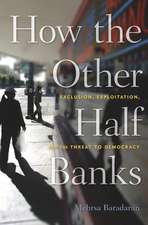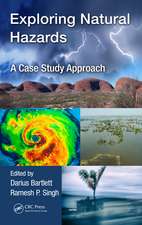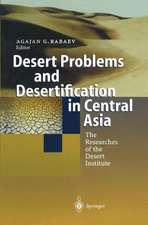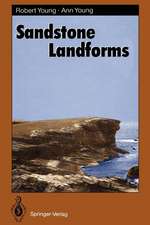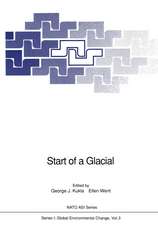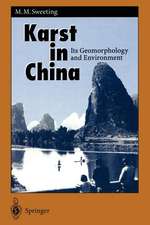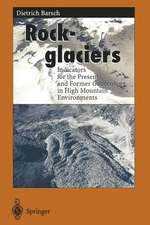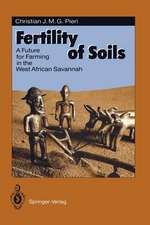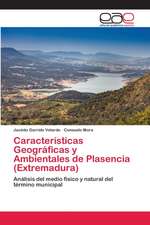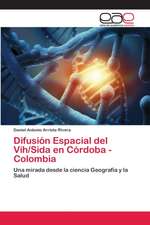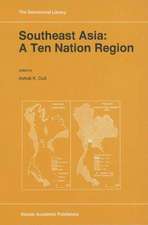Routledge Handbook of Indigenous Peoples in the Arctic: Routledge International Handbooks
Editat de Timo Koivurova, Else Grete Broderstad, Dorothée Cambou, Dalee Dorough, Florian Stammleren Limba Engleză Hardback – 4 dec 2020
Offering multidisciplinary insights from leading figures, this handbook highlights Indigenous challenges, approaches and solutions to pressing issues in Arctic regions, such as a warming climate and the loss of biodiversity. It furthers our understanding of the Arctic experience by analyzing how people not only survive but thrive in the planet’s harshest climate through their innovation, ingenuity and agency to tackle rapidly changing environments and evolving political, social, economic and cultural conditions. The book is structured into three distinct parts that cover key topics in recent and future research with Indigenous Peoples in the Arctic. The first part examines the diversity of Indigenous peoples and their cultural expressions in the different Arctic states. It also focuses on the well-being of Indigenous peoples in the Arctic regions. The second part relates to the identities and livelihoods that Indigenous peoples in Arctic regions derive from the resources in their environments. This interconnection between resources and people’s identities underscores their entitlements to use their lands and resources. The third and final part provides insights into the political involvement of Indigenous peoples from local all the way to the international level and their right to self-determination and some of the recent related topics in this field.
This book offers a novel contribution to Arctic studies, empowering Indigenous research for the future and rebuilding the image of Indigenous peoples as proactive participants, signaling their pivotal role in the co-production of knowledge. It will appeal to scholars and students of law, political sciences, geography, anthropology, Arctic studies and environmental studies, as well as policy-makers and professionals.
| Toate formatele și edițiile | Preț | Express |
|---|---|---|
| Paperback (1) | 321.83 lei 6-8 săpt. | |
| Taylor & Francis – 31 mai 2023 | 321.83 lei 6-8 săpt. | |
| Hardback (1) | 1533.42 lei 6-8 săpt. | |
| Taylor & Francis – 4 dec 2020 | 1533.42 lei 6-8 săpt. |
Din seria Routledge International Handbooks
-
 Preț: 371.78 lei
Preț: 371.78 lei -
 Preț: 375.50 lei
Preț: 375.50 lei -
 Preț: 362.19 lei
Preț: 362.19 lei -
 Preț: 349.09 lei
Preț: 349.09 lei - 9%
 Preț: 1487.70 lei
Preț: 1487.70 lei - 5%
 Preț: 317.31 lei
Preț: 317.31 lei -
 Preț: 1057.72 lei
Preț: 1057.72 lei -
 Preț: 372.05 lei
Preț: 372.05 lei -
 Preț: 390.13 lei
Preț: 390.13 lei -
 Preț: 311.91 lei
Preț: 311.91 lei - 9%
 Preț: 1489.40 lei
Preț: 1489.40 lei -
 Preț: 390.22 lei
Preț: 390.22 lei -
 Preț: 341.55 lei
Preț: 341.55 lei -
 Preț: 347.74 lei
Preț: 347.74 lei - 9%
 Preț: 1490.11 lei
Preț: 1490.11 lei -
 Preț: 356.97 lei
Preț: 356.97 lei -
 Preț: 349.23 lei
Preț: 349.23 lei - 5%
 Preț: 326.56 lei
Preț: 326.56 lei -
 Preț: 394.24 lei
Preț: 394.24 lei - 8%
 Preț: 392.89 lei
Preț: 392.89 lei - 8%
 Preț: 422.42 lei
Preț: 422.42 lei -
 Preț: 357.56 lei
Preț: 357.56 lei - 8%
 Preț: 428.01 lei
Preț: 428.01 lei - 5%
 Preț: 437.56 lei
Preț: 437.56 lei -
 Preț: 341.55 lei
Preț: 341.55 lei - 9%
 Preț: 1651.61 lei
Preț: 1651.61 lei - 9%
 Preț: 1665.66 lei
Preț: 1665.66 lei -
 Preț: 381.91 lei
Preț: 381.91 lei -
 Preț: 347.48 lei
Preț: 347.48 lei -
 Preț: 347.69 lei
Preț: 347.69 lei - 20%
 Preț: 1400.22 lei
Preț: 1400.22 lei -
 Preț: 341.55 lei
Preț: 341.55 lei -
 Preț: 348.17 lei
Preț: 348.17 lei -
 Preț: 341.55 lei
Preț: 341.55 lei -
 Preț: 349.09 lei
Preț: 349.09 lei -
 Preț: 350.49 lei
Preț: 350.49 lei -
 Preț: 348.05 lei
Preț: 348.05 lei - 5%
 Preț: 332.78 lei
Preț: 332.78 lei -
 Preț: 358.30 lei
Preț: 358.30 lei - 9%
 Preț: 1528.86 lei
Preț: 1528.86 lei -
 Preț: 347.11 lei
Preț: 347.11 lei -
 Preț: 392.94 lei
Preț: 392.94 lei - 9%
 Preț: 1454.51 lei
Preț: 1454.51 lei - 5%
 Preț: 324.48 lei
Preț: 324.48 lei -
 Preț: 346.20 lei
Preț: 346.20 lei -
 Preț: 361.74 lei
Preț: 361.74 lei - 9%
 Preț: 1349.74 lei
Preț: 1349.74 lei - 19%
 Preț: 422.81 lei
Preț: 422.81 lei - 8%
 Preț: 385.56 lei
Preț: 385.56 lei
Preț: 1533.42 lei
Preț vechi: 1870.02 lei
-18% Nou
Puncte Express: 2300
Preț estimativ în valută:
293.68€ • 302.57$ • 246.01£
293.68€ • 302.57$ • 246.01£
Carte tipărită la comandă
Livrare economică 24 februarie-10 martie
Preluare comenzi: 021 569.72.76
Specificații
ISBN-13: 9780367220396
ISBN-10: 0367220393
Pagini: 402
Ilustrații: 68
Dimensiuni: 174 x 246 x 21 mm
Greutate: 0.45 kg
Ediția:1
Editura: Taylor & Francis
Colecția Routledge
Seria Routledge International Handbooks
Locul publicării:Oxford, United Kingdom
ISBN-10: 0367220393
Pagini: 402
Ilustrații: 68
Dimensiuni: 174 x 246 x 21 mm
Greutate: 0.45 kg
Ediția:1
Editura: Taylor & Francis
Colecția Routledge
Seria Routledge International Handbooks
Locul publicării:Oxford, United Kingdom
Public țintă
Postgraduate, Professional, and UndergraduateCuprins
SECTION 1 Arctic Indigenous diversity and the foundations of cultural, social and spiritual well-being 1. The role of statistics in relation to Arctic Indigenous realities 2. Indigenizing education in Sapmi/Norway: rights, interface and the pedagogies of discomfort and hope 3. What makes a good political leader? Young people’s perceptions from the republic of Sakha (Yakutia) 4. Electronic devices for safeguarding Indigenous languages and cultures (Eastern Siberia) 5. Voices of the forests, voices of the streets: popular music and modernist transformation in Sakha (Yakutia), Northeast Siberia 6. Soviet-time Indigenous displacement on the Kola Peninsula: an extreme case of a common practice 7. Indigenous Arctic religions SECTION 2 The fundamental importance of land, territories and resources 8. Changing Indigenous territorial rights in the Russian North 9. Sami law and rights in Norway – with a focus on recent developments 10. Comprehending the mandate and interactions of land tenure reform in Finnmark, Norway 11. The Girjas Case – court proceedings as a strategy to enforce Sami land rights 12. Arctic waters as Inuit homeland 13. Alaska Native marine mammal harvesting: the Marine Mammal Protection Act and the crisis of eligibility 14. Review and mapping of Indigenous knowledge concepts in the Arctic SECTION 3 Indigenous peoples and self-determination in the Arctic 15. Indigenous self-government in the Arctic: assessing the scope and legitimacy in Nunavut, Greenland and Sapmi 16. Advancing Inuit self-determination and governance in Alaska and Canada amidst renewed global focus on the Arctic 17. Indigenous peoples’ right to self-determination: perceptions of self-determination among the Sami electorate in Sweden 18. Indigenous self-determination and disempowerment in the Russian North 19. The participation of Arctic Indigenous peoples’ organizations in the Arctic Council and beyond 20. Legal appraisal of Arctic Indigenous peoples’ right to free, prior and informed consent Epilogue: Alaska natives and climate change
Notă biografică
Timo Koivurova is Research Professor and Director at the Arctic Centre, University of Lapland. He has a multidisciplinary specialisation in Arctic law and government but has also conducted broader research on global law.
Else Grete Broderstad is Professor in Indigenous Studies and coordinates the Indigenous Master Programme, UiT, The Arctic University of Norway. Her research areas include Indigenous rights, political participation, governance of the Circumpolar North, resource management and conflicting interests between Indigenous traditional livelihoods and large-scale industries.
Dorothée Cambou is Assistant Professor in sustainability science at the faculty of law, HELSUS, University of Helsinki. Her research focuses on the rights of Indigenous peoples and the governance of land and natural resources in the Arctic and the Global South.
Dalee Dorough, an Inuk from Alaska, is Senior Scholar and Special Advisor on Indigenous Peoples in the Arctic, UAA. Specializing in international Indigenous human rights, she holds a PhD in law bestowed by University of British Columbia in 2002 and Master of Arts in law and diplomacy from The Fletcher School in 1991.
Florian Stammler is Coordinator of Anthropology and Research Professor at the Arctic Centre, University of Lapland. His research is on nomadism, human–environment relations, Indigenous peoples and extractive industries. His publications include Reindeer Nomads Meet the Market and Good to Eat, Good to Live With.
Else Grete Broderstad is Professor in Indigenous Studies and coordinates the Indigenous Master Programme, UiT, The Arctic University of Norway. Her research areas include Indigenous rights, political participation, governance of the Circumpolar North, resource management and conflicting interests between Indigenous traditional livelihoods and large-scale industries.
Dorothée Cambou is Assistant Professor in sustainability science at the faculty of law, HELSUS, University of Helsinki. Her research focuses on the rights of Indigenous peoples and the governance of land and natural resources in the Arctic and the Global South.
Dalee Dorough, an Inuk from Alaska, is Senior Scholar and Special Advisor on Indigenous Peoples in the Arctic, UAA. Specializing in international Indigenous human rights, she holds a PhD in law bestowed by University of British Columbia in 2002 and Master of Arts in law and diplomacy from The Fletcher School in 1991.
Florian Stammler is Coordinator of Anthropology and Research Professor at the Arctic Centre, University of Lapland. His research is on nomadism, human–environment relations, Indigenous peoples and extractive industries. His publications include Reindeer Nomads Meet the Market and Good to Eat, Good to Live With.
Descriere
This handbook brings together the expertise of Indigenous and non-Indigenous scholars to offer a comprehensive overview of issues surrounding the well-being, self-determination and sustainability of Indigenous peoples in the Arctic.

